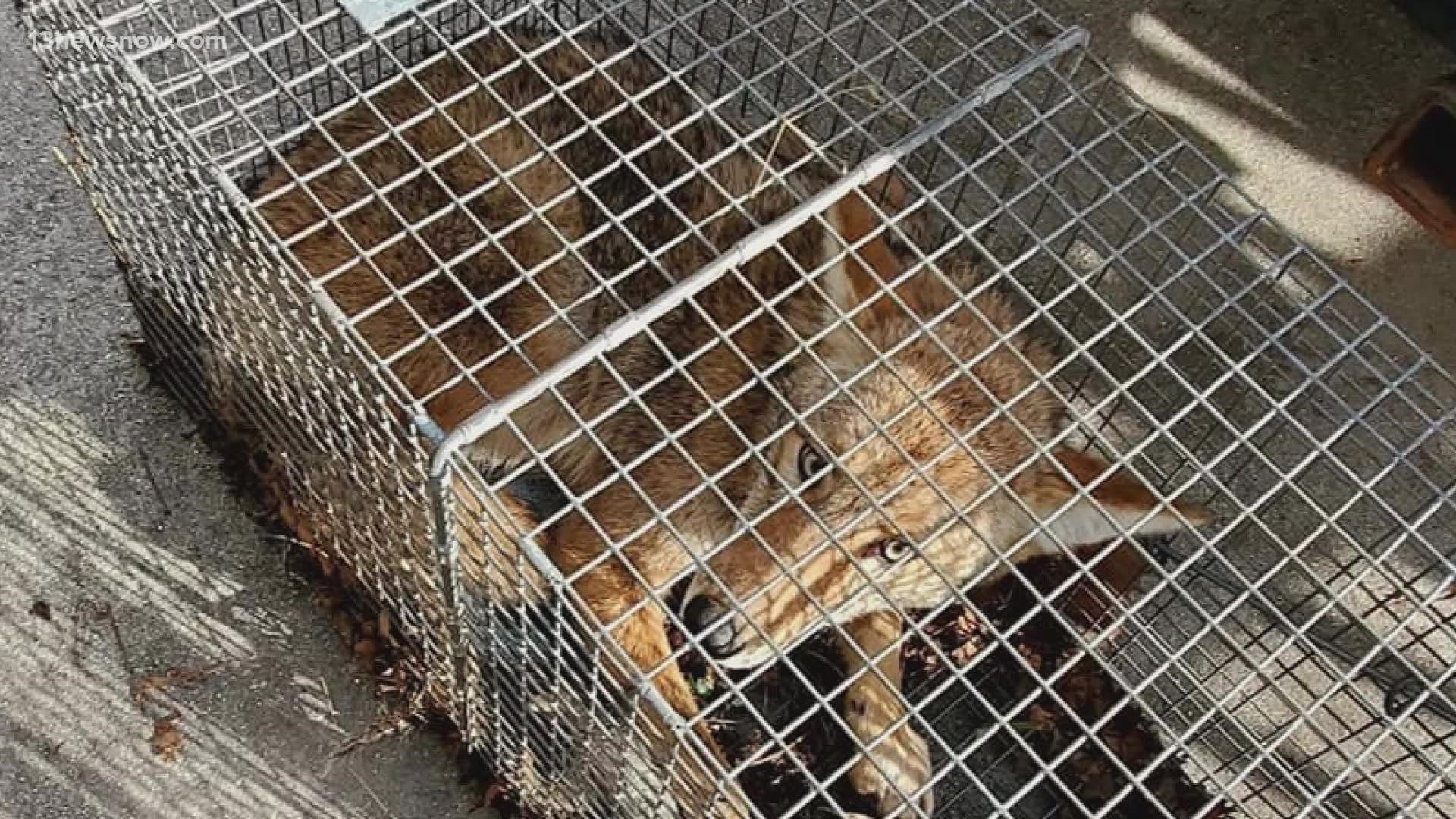NORFOLK, Va. — There’s an uptick of coyote sightings in unusual areas of Hampton Roads. A trapping company in Norfolk said they’ve recently caught a few in the heart of the Mermaid City.
Coyotes aren’t native to Virginia, but ACME Animal Control caught one behind a school in Norfolk last week.
“Teachers were reported seeing a coyote, they had us go out there and set a couple live traps,” said ACME owner Brian Fiske.
A few months before that, Fiske also trapped a coyote in the same city.
“Back in November, we have to go set a trap for coyotes across from Sentara Leigh Hospital,” Fiske said.
Fiske said, typically, they get calls about coyotes in rural parts of Hampton Roads, but he’s not surprised to see the animals in our urban areas.
“They have definitely moved into the area. Unfortunately, we are going to have to live with them,” Fiske said. “There are going to be some conflicts.”
He said coyotes usually leave humans alone and hunt at night, but he warns people to watch out for pets.
“When they are outside, just keep an eye on them,” Fiske said. “If you leave them unattended, especially overnight, that is when these coyotes come out to hunt and unfortunately your pet could become prey for them.”
ACME Animal Control humanely catches all animals in live traps.
“The majority of our animals we are able to catch, re-release or relocate,” Fiske said.
But, a coyote isn’t one they can relocate.
“Just about all nuisance wildlife, or wildlife that causes human conflict, has to be humanely euthanized,” said Mike Fies, a biologist with the Virginia Department of Wildlife Resources.
Fies said state policy requires euthanasia because the animal could continue problem behavior, they could spread disease, and the chances of survival at a relocation site are low.
“They are not familiar with the habitats you take them to, they are not familiar with the food resources, water resources,” Fies said. “The stress from all that often results in the animal having a slow, painful death.”
However, Fies said people only need to call a licensed trapper if the animal gets too close to their home.
“Unless the coyote is acting strangely, acting unusually bold or aggressive, then it is probably not an issue they need to be concerned about,” Fies said.
The Virginia Department of Wildlife Resources said people can reduce the chance of attracting a coyote to their property by not feeding wildlife, placing trash in an animal-proof container, removing bird feeders and clearing fallen fruit from trees.
They have more resources on what to do if you encounter a coyote.

